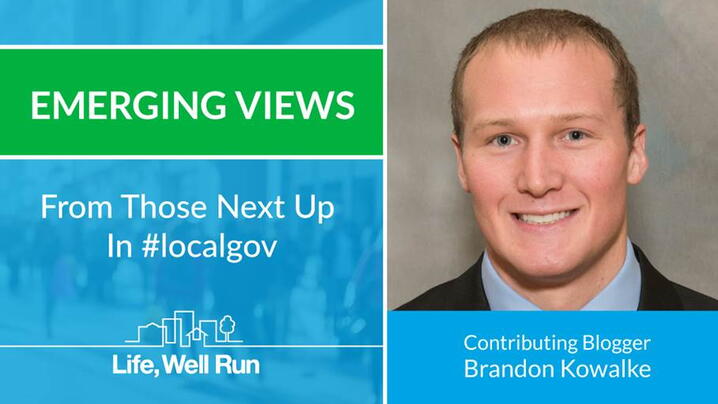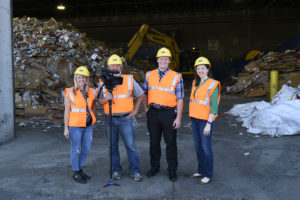
I’m sure that some of us can recall moments in life when we stop and think “Wow, that’s how this works? How have I gone so long without knowing that?” Perhaps sitting down to do your taxes for the first time dispels some of the “mystery” behind that withholding line on your paycheck. Maybe you woke up to a flat tire, googled what to do, and were absolutely thrilled to learn how to use the iron and jack hidden somewhere in the trunk. There are many complex systems in our world, from those that collect your taxes to those that ensure your car comes equipped to handle a flat tire.
For me, nothing was quite so eye-opening as the realization that behind almost every city, there exists a team of professionals with a staggering variety of skills to take care of their communities. Among them are accountants, police officers, engineers, sign makers, electricians, urban planners, firefighters, and so many others. When I take a step back to think about a community’s many needs, it comes as no surprise that our local governments have a set of responsibilities just as varied. Both my MPA coursework at Northern Illinois University and internship with the City of Wheaton have been given me a close view of this complexity, and the value it can provide in action.
Municipal Solid Waste
When I arrived in Wheaton last year, a change in residential garbage pickup loomed on the horizon. While a change in contractor would have been significant, many other changes were also in tow. The new vendor would provide automated collection and standardized carts to residents, service for garbage and recycling collection would be billed electronically using radio-frequency identification chips attached to the carts, and the contractor would offer an organic composting and collection service. Under the previous contract, residents paid for their service by purchasing and placing stickers to their garbage cans.

Photo Credit: Bill Kenney, Municipal Sales Manager – Lakeshore Recycling Systems.
To facilitate such a change, many things had to happen: a variety of communications were needed to prepare residents for the program, data needed to be delivered to the contractor detailing all participating households, staging areas were needed for the contractor to temporarily store carts for delivery, frontline staff had to prepare for resident inquiries, a legal review of the contract was required, and an amendment to city code had to be drafted.
In some instances, this required coordinating the activities of internal departments with those of the contractor. Working with the City Manager’s Office, I learned the importance of building relationships between key actors, each playing a unique but linked role in the process. Our Communications department cooperated with the contractor to generate brochures and arrange informational seminars for residents at the library. In addition to getting this information out via our websites, we mailed it to residents directly with their water bills. In addition to handling an exchange for resident’s old stickers, our Finance department became experts on the program to address the many calls we received during the transition. The Building and Code department provided valuable guidance in drafting an amendment to city code compliant with industry standards and language. Our Information Technology department generated the data and maps needed for the contractor to plan their implementation.
Wheaton’s curbside waste program saw its 1-year anniversary last month. Were you to buy a home in Wheaton today, you would receive a two-page information packet detailing the program’s service options, prices, account set-up information, and have everything figured out after your first pick-up.
But, beneath such an innocuous service, is a story of many professionals with unique talents working to establish an intricate and efficient program. Sometimes, an extraordinary sum of expertise supports what others may perceive as a simple matter.
Brandon Kowalke holds a graduate internship in Wheaton, Illinois through Northern Illinois’ MPA program. Working in the City Manager’s Office, Brandon assists in managing cross-departmental initiatives and special projects. Thus far, Brandon has helped to develop the city’s Marked Crosswalk Policy, oversee a study of the city’s paid parking technology, and implement a database to assist in employee cross-training.
Brandon earned a Bachelor of Arts degree in Political Science from Northeastern Illinois University and is currently working on a Master of Public Administration degree from Northern Illinois University. He is also a member of the ICMA, ILCMA, and IAMMA.
New, Reduced Membership Dues
A new, reduced dues rate is available for CAOs/ACAOs, along with additional discounts for those in smaller communities, has been implemented. Learn more and be sure to join or renew today!
